Amid community resentment, cities in Europe and beyond are clamping down on rapid grocery dark stores. How can operators face the threat?
Rapid grocery depots – better known as dark stores – across Paris are likely to soon shutter after the French government decreed last week that they be classified as warehouses, rather than as shops, making it easier for mayors to close them down.
It comes amid growing resentment from locals and city authorities, angered by the noise, traffic disruption and litter they generate.
“It’s a question of society,” Camille Augey, a deputy mayor of Lyon, told the BBC. “We managed perfectly well before quick commerce, didn’t we?”
But Paris is just one of a growing list of cities where the dark stores face such a clampdown.
So, is it a proportionate response from authorities? And how can the struggling sector survive the backlash, especially should it spread to the UK?
“Protectionism at its best,” is how Jiffy investor Dominique Locher summarises the Europe-wide actions. “This intentional interference in the country’s on demand delivery’s economic system… is simply ridiculous”.
In his view, authorities have not caught up to “the new digital age”. “Warehouses, the way we look at them, are relics of an old supply chain. But what about our current world where goods are being ordered online and shipped directly to the customer? Aren’t dark stores a transition point between the warehouse and the final customer?” he adds.
Even so, the complaints from residents are arguably not unreasonable.
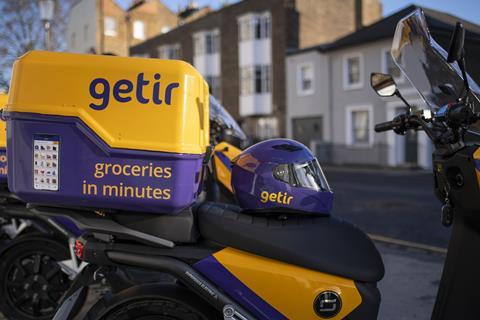
“Overnight, you had ‘stores’ pop up with dozens of couriers, lots of bikes parked on the pathways, lots of loud mopeds, and deliveries, all while operating for 14 to 24 hours a day,” explains Quaid Combstock, Jiffy’s former head of delivery operations and now consultant, who spent the first half of this year advising quick commerce companies in Europe. “Add that you have ‘stores’ below residential buildings and you can understand the frustration.”
The main problem was rapid grocery’s “maddening periods of hyper-growth” which saw a “blitzkrieg” of new dark stores.
The players prioritised “speed of launch ahead of finding an option that operationally suited the company, while ensuring they did not negatively impact the local community” he adds.
The reckless strategy is now coming home to roost. “Very simply, it was a free-for-all,” Combstock says. “Ultimately it was an avoidable own goal.”
The sector is responding – primarily by seeking loopholes that might convince councils their dark stores are more than mere warehouses.
Last month – in direct response to authority action – Getir launched its first walk-in supermarket in Amsterdam, which functions like any other, with a small space dedicated to fulfilling app orders. It came after a judge was unconvinced the installation of an order pick-up counter made it a site of ‘retail trade’ rather than a DC.
Now, versus other retailers, “We are no different to them,” says Getir Netherlands general manager Florian Brunsting.
In Rotterdam Getir has even turned one dark store’s window displays into an art gallery.
Others are opening up their dark stores to the public, too. Gorillas in July opened a coffee shop within one of its London dark stores, which also offers space for customers to click & collect orders. Gopuff has several similar stores in the US. In May, grocery delivery service Nippy secured funding to open three dark stores, which will double as walk-in shops where customers can browse shelves.
The spreading backlash
In January, Amsterdam imposed a one-year ban on new dark stores. Rotterdam introduced the same ban a week later and several other cities in the Netherlands are working on similar policies. Getir, Gorillas and Zapp have closed dark stores in Amsterdam, the latter opting to exit the Netherlands completely.
In June, Madrid City Council – updating its zoning regulations for the first time in 20 years – banned dark stores of more than 350 sq m from residential areas. Barcelona said in March it would not grant permission for any further dark stores in the city.
The sentiment is spreading beyond Europe. New York City Mayor Eric Adams in May introduced new rules meaning shoppers must be able to enter dark stores and make purchases without an app.
PR flannel
Industry experts consider the moves as little to do with consumer need.
“They’ll spend ages releasing press statements in order to make themselves look good, but these projects are almost always designed to skirt building regulations,” says Combstock, who says he has never known a customer to complete a click & collect order.
The anti-dark store movement is an existential threat for rapid grocery. Dark stores must be placed in areas with a high density of population (any hope of profitability demands riders fulfil more than one order per route), with high consumer spending and smartphone usage. This is almost always in city centres.
“Without these central stores, grocery q-commerce players will be forced to move away from the centre of the city, thus forcing them to incur longer travel distances, which translates to long delivery times at a higher labour cost,” says Combstock. “They would need to increase the delivery fee to cover the cost, at a rate most customers would deem unacceptable; or take a hit financially, on a product that is already struggling to make any money.”
But pivoting dark stores into walk-in retail spaces could succeed for the rapid players, argues Kantar senior retail insights analyst Nishant Shrikhande. “I think this could go one of two ways,” he says. “Either it is an existential threat because rapid delivery companies cannot find a way to deliver across a city without dark stores, or it spawns a pivot to a multifaceted fulfilment strategy.”
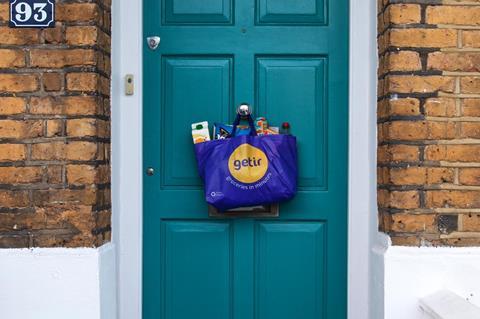
Whether other cities and countries follow suit is to be determined, he says. “Rapid delivery has boomed in the last three years and societies are still trying to decide how they feel about it.”
The UK is protected somewhat from the crackdowns seen elsewhere. Strict alcohol licensing rules require any premise selling or delivering alcohol to consider its impact on the local community, with approval needed from local authorities, police and the Environment Agency. “These rules often do not exist in Benelux regions,” Combstock says.
It also benefits from the industrial stock of its biggest cities. “London has the luxury of lots of warehousing space throughout central parts of the city – chiefly the arches under the railways. However, many cities around Europe do not have such a luxury,” Combstock explains. It’s one of the reasons many of the main players are prioritising the UK market.
That’s not to say they’re immune from resistance. Small, resident campaign groups are popping up to protest dark stores. “Pity residents living with the stench of these overflowing bins and clatter of idling HGVs directly below their front doors,” says one, set up around a street in Lambeth.
And with Interact Analysis forecasting the UK will have 1,500 grocery dark stores by 2030 – up from around 200 now – conflict with the communities in which they operate could have some way to run.







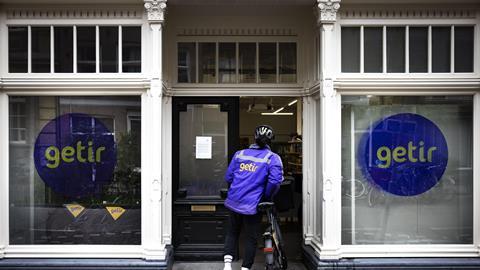
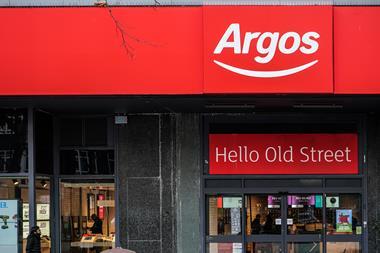



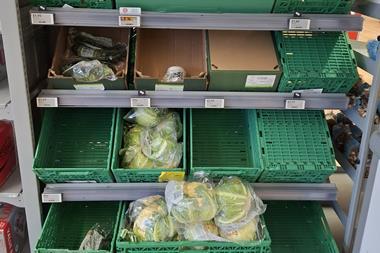







No comments yet